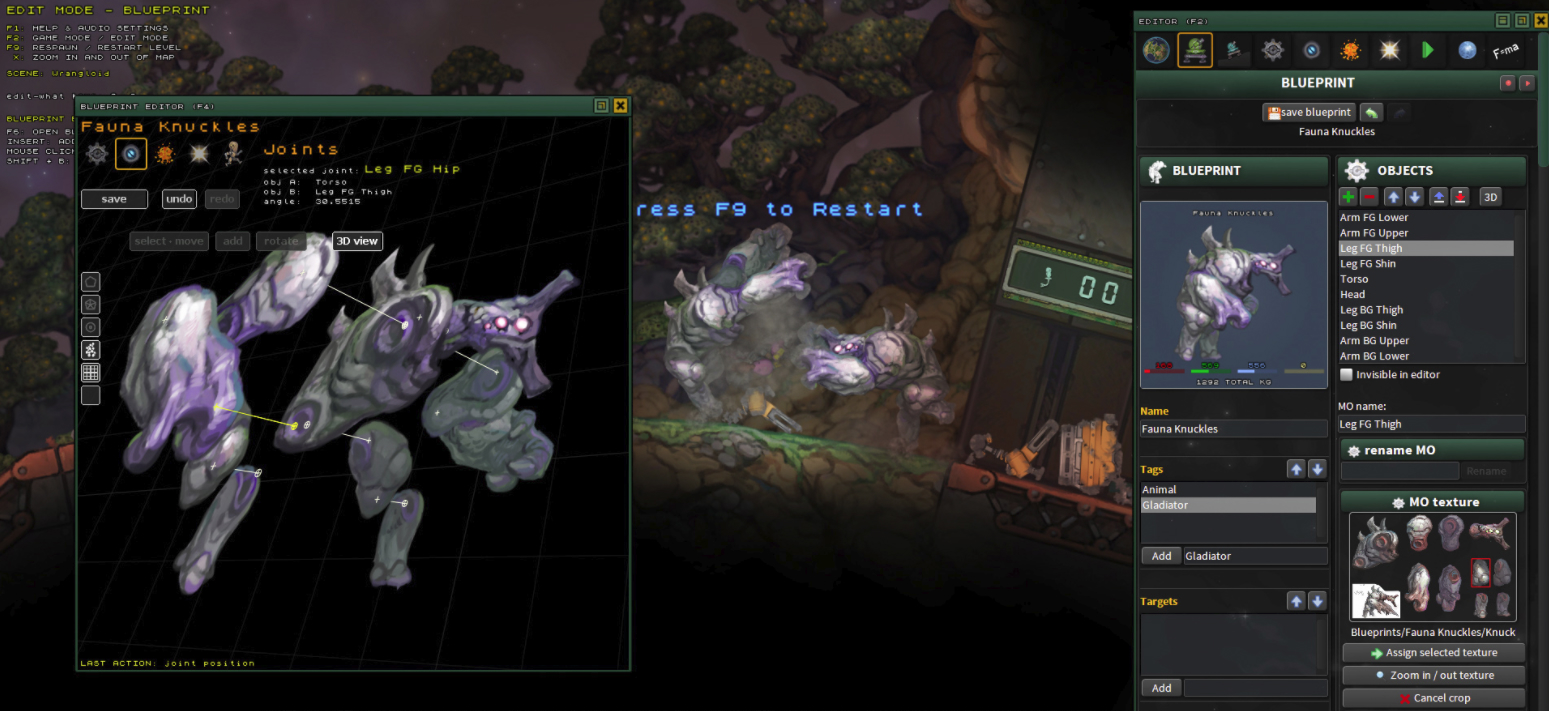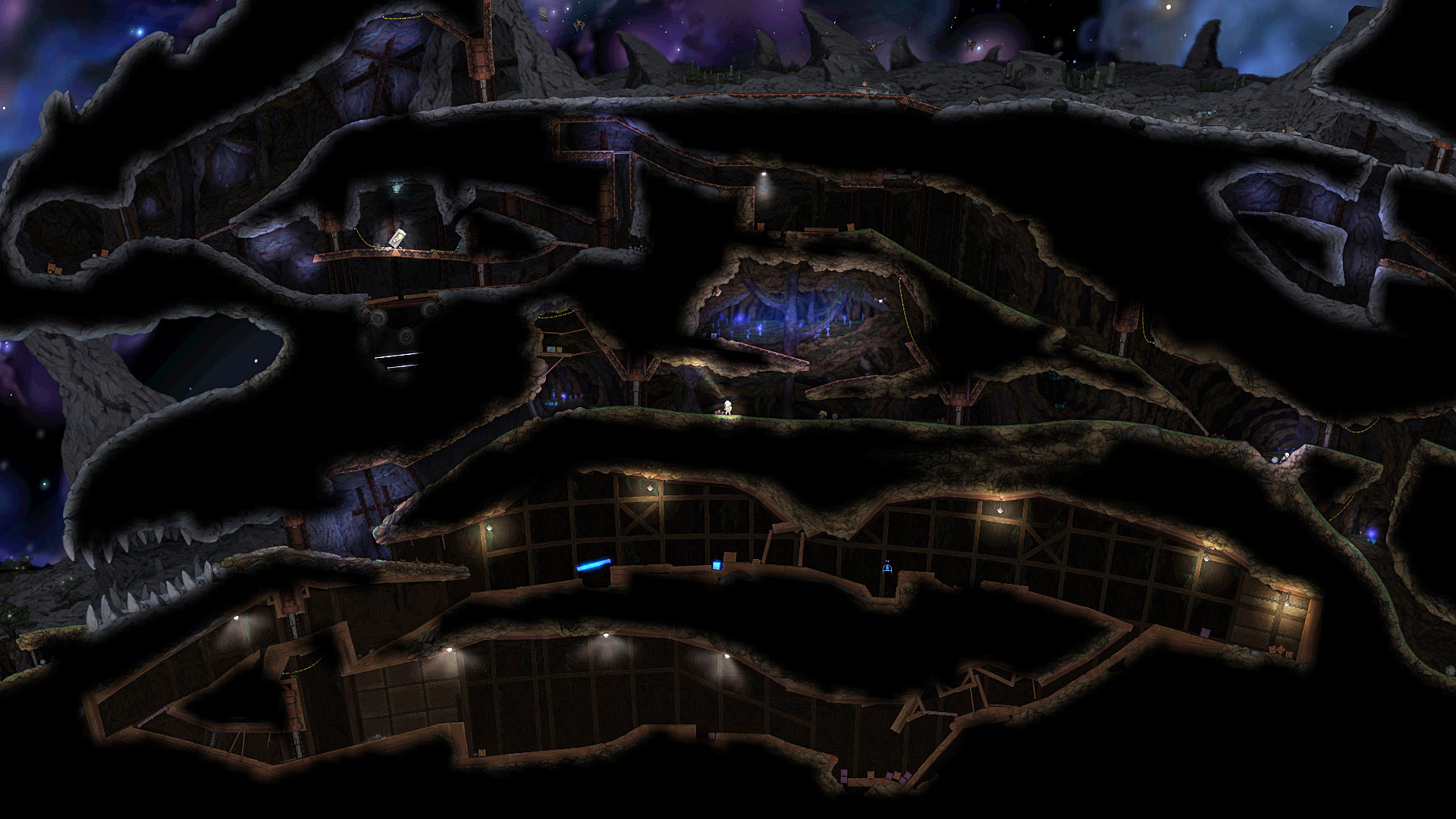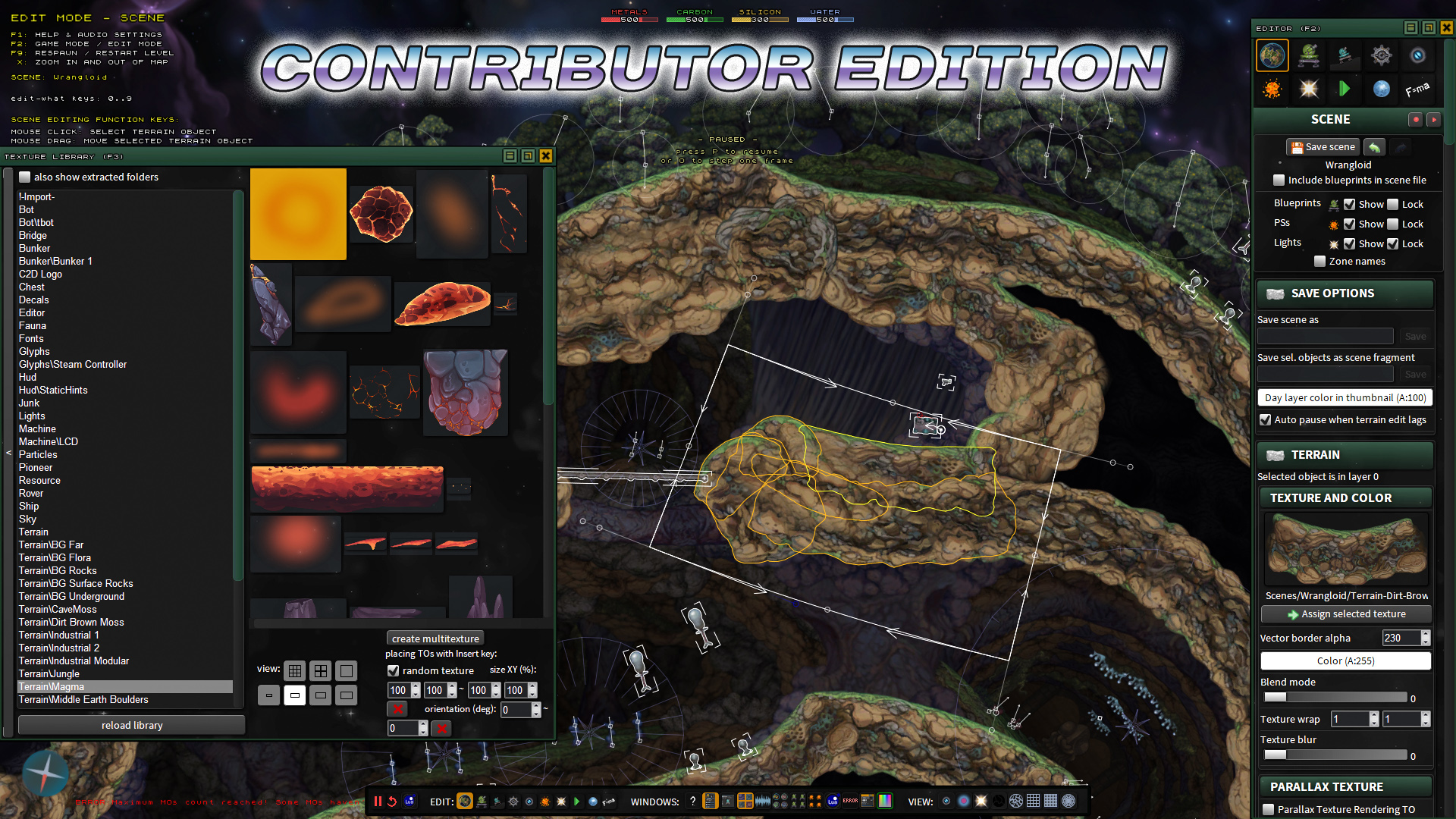How Planetoid Pioneers' Spelunky-style stores automatically download Steam mods
Data Realms on merging user-made creations, and filtering NSFW content.

Planetoid Pioneers is the customisable space sandbox game that Matt Sayer once introduced his real-life, five-door sedan into. In a bid to further promote this level of quirky player-driven intervention, developer Data Realms (the studio responsible for Cortex Command) has now rolled out a feature that automatically downloads and merges Steam Workshop mods into the game, by way of Spelunky-style shops and loot orbs.
"Blueprints from the workshop will now appear in various places and ways in the game," says the developer on the game's Steam Early Access page. "You don't have to subscribe to them to make them appear; they'll be downloaded from the Workshop (if they have a positive rating) and automatically infused into the official game content."
Keen to find out more (for example: how are NSFW mods filtered?), I caught up with Data Realms' Dan Tabar about the hows and whys of the system, and its potential into the future.

PC Gamer: How easy or difficult was implementing the system?
Dan Tabar: Since we're building this on top of the Steam Workshop, a big part of the foundation and heavy lifting is already done by the fine folks at Valve. However, we've gone quite a bit further in fully integrating the Workshop with our game than the typical title: We actively and automatically pull content into various areas of the game, instead of waiting for the player to browse and subscribe to stuff on the Workshop web interface. Instead, when they simply fire up the game, there are suddenly new Planetoids in their asteroid belt to visit, and fresh arrays of new things be randomly selected and presented to them in the in-game stores and loot secrets.
We also had to design the system around how this would work in-game and still keep it somewhat balanced and appropriate. We defined some rules for what is required of a "Weapon" or "Tool", and will encourage our Workshop community to flag anything that doesn't follow those guidelines. For example: weapons are divided up in tiers in terms of power and how advanced they are, so that the level designer still has some control over what kind of item will show up at specific places in their map.
Players are also able to rate which blueprints are fun to use, right there in the game. So, when you've bought (with in-game resources, not tied to IRL money in any way) and used a Workshop blueprint and return to the in-game shop later, the first thing you get asked is "Would you recommend this blueprint to the community?". This rating has more influence than just seeing if a weapon is fun—it also determines the price the next player has to pay for it with their in-game resources. For example, a new item that's never been rated before will be free to try, but if an item is rated very good, the price will go up, or it might get discounted if it hasn't been used in a while.
Keep up to date with the most important stories and the best deals, as picked by the PC Gamer team.
If an item falls below a negative rating threshold, it will disappear from the in-game shops and we'll notify it's creator that he/she probably has to adjust some things!
What have been the biggest challenges in doing so?
We are taking maximum advantage of the fact that we built our own game engine (Crush2D) from scratch, which ship with a suite of integrated commercial-grade tools that are way more powerful than most developers even make for themselves. We architected everything to allow our players to create and share content in the easiest possible way, and have that stuff become automatically infused into the extremely modular and expandable Planetoid Pioneers experience for everyone else. All this took us about eight years to build out, so that's probably the biggest challenge in general behind being able to have these features work in a coherent way that makes sense.
For example, the game design of Planetoid Pioneers is all about throwing physics challenges at the player, and granting them the flexibility to solve it in any way they see fit: with help from any tools, weapons, creatures, and vehicles they have a blueprint for (and the resources to build) at the time. If that blueprint happens to have come from the Workshop, the game's flexibility only makes it an additional interesting way to solve something, whether it's getting past a murderous robot or a huge hole in the ground.
How do you moderate what gets in? For example: what are the chances of NSFW (and worse) mods slipping through?
As far as the "worse" goes: we have gone to great lengths in our engine and scripting system to "sandbox" it, and make it very hard to do any kind of damage to data or to crash the game through one of these mods (that do contain Lua scripts with all the game logic, AI routines, and other code related to the player-made item or Planetoid).
On the NSFW front, we are taking advantage of the robust flagging tools and mechanisms that Valve has built into the Workshop, and hope it will be enough to quell offensive items from reaching too many eyeballs. If we find that it isn't enough, we have a whitelisting system waiting in the wings, in which we and the community would first have to manually approve things before they can get pushed into people's games. We'd rather avoid having to get in between people's creative output being enjoyed by an instant audience though, and so far no real NSFW things have emerged from our Contributor Community during our Early Access period, so we remain optimistic.
And again, even if something isn't directly offensive, but just not that great in terms of quality or fun factor, we are using that aforementioned rating system with in-game controls to allow players tell the game which things to present less frequently to future players.

Why do you think other games haven't done this before?
Mainly, I think it's that we built this entire engine and game design around the idea of elevating "modders" (who are usually an afterthought—they get to tinker with a game after it is 'done') into "Contributors", who are empowered and encouraged to work alongside the official development team in building and expanding this experience, indefinitely. Without an engine that has ability to save an entire Planetoid and everything about it to one self-contained PNG file, for example, it would be a lot harder to pull this all off. Having no dependencies between mods, and have a game design that is flexible enough to allow for them to be merged into it at any time, are critical elements that doesn't fit all games or the technologies they are built on.
Do you think other games will add similar systems in future?
That would be cool—we definitely hope more developers get inspired.
I'd like to point out that there are more developers than ever, and more games being made. It's hard to make a career in the games industry, but game development itself has gotten only easier with all the tools we now have. A fun and legit way to start doing gamedev work is by modding. This was a big thing that unexpectedly happened in the community of our previous game, Cortex Command, where there were cases of people who started there, and now have serious full-time careers in the games industry.
We love that! So, Planetoid Pioneers and its Crush2D engine was built to make more of that happen—to give players all the tools they need to make changes to the game and bring their own ideas to life. Designers on our team came straight out of the modding community of PP when it was still only just tools and editors, some making cool stuff while still being in high-school when we hired them.
With the game industry having more and more hobbyists these days, it makes perfect sense for us at Data Realms to try and make a fun, creative, physics-driven environments where people can fool around, make things, share them, and learn critical skills like engineering, art, physics, programming, and collaboration in the process.

